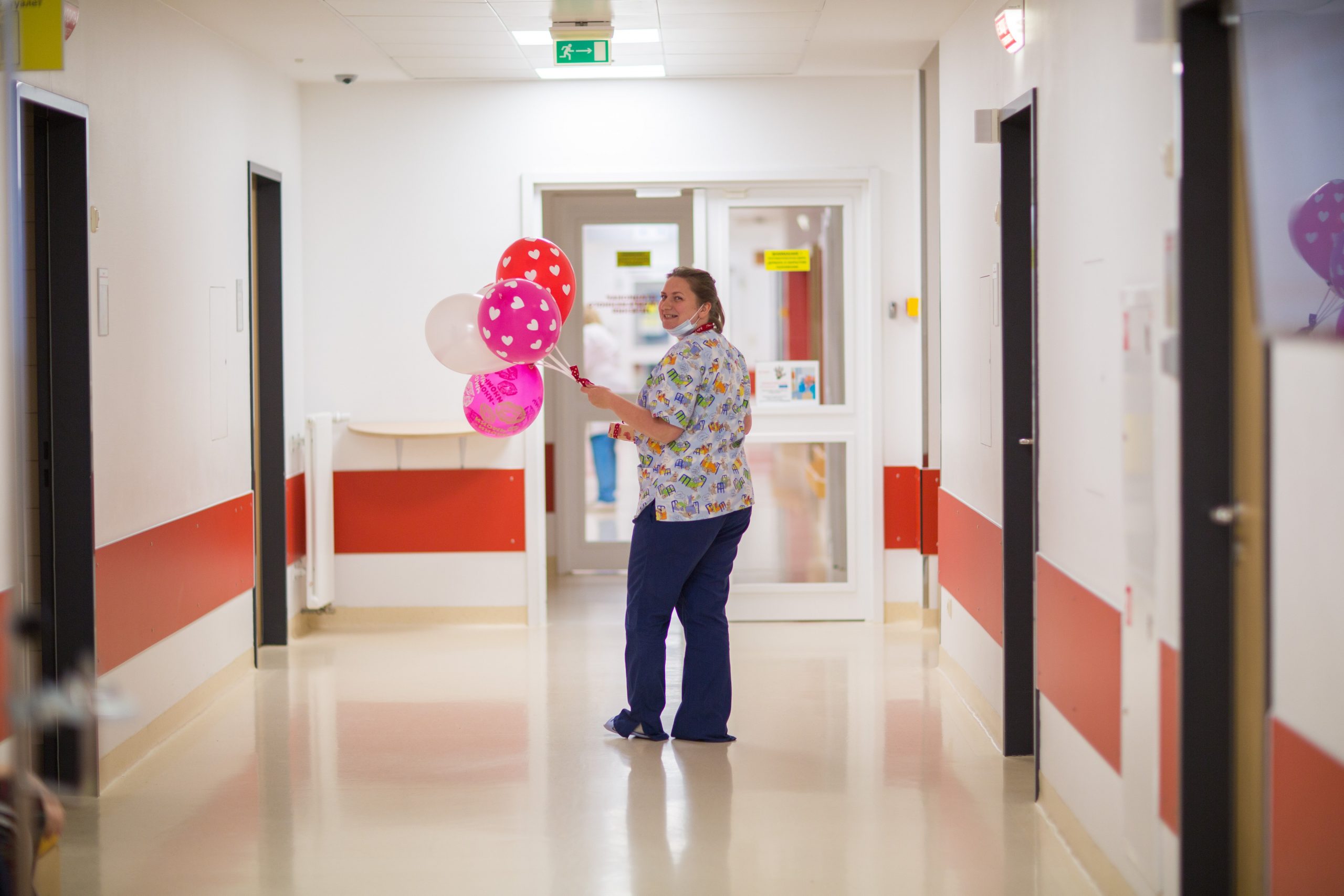My name is Julia (Julia Boleyninger, senior coordinator). I work as a coordinator for the Podari Zhizn charity at the Dmitry Rogachev National Medical Research Centre for Paediatric Oncology, Haematology and Immunology. To me, this isn’t just a job, but a way of life. Today, I want to share with you one August day from the life of our hospital.
10 August 2018, Moscow, Russia
This is our building, tall and colourful.
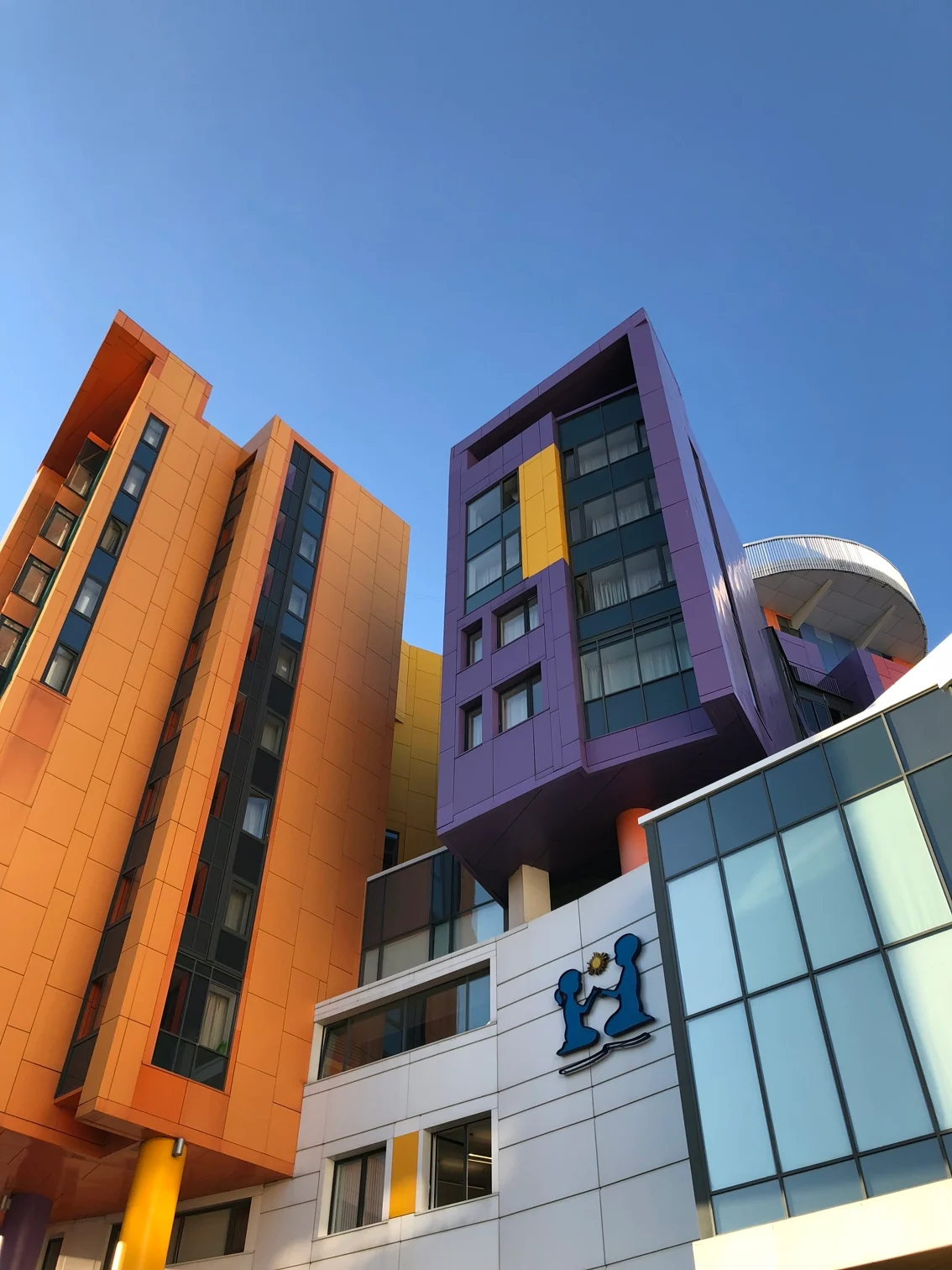 A work day at the Centre starts with checking your mail and your plan for the day. My daily schedule is closely tied to the routine of the patients’ medical procedures, so I have to make sure I get everything planned out and get as much done as possible.
A work day at the Centre starts with checking your mail and your plan for the day. My daily schedule is closely tied to the routine of the patients’ medical procedures, so I have to make sure I get everything planned out and get as much done as possible.
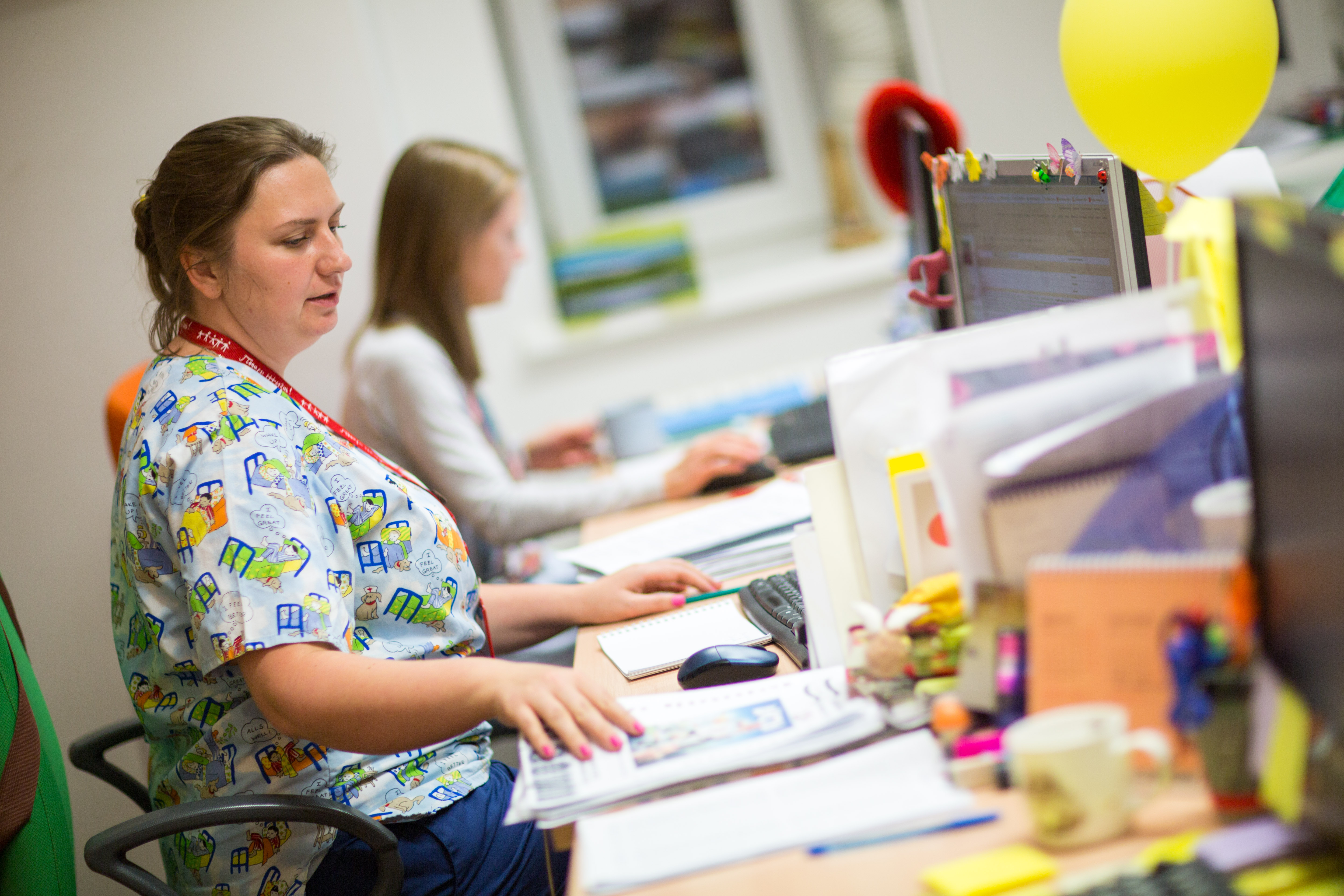
This is me coming to talk to the doctors. I love days when they’re in a good mood. It’s a sign that it’s business as usual at the department. The children are getting treatment, the doctors are giving it, and our charity is helping it all happen.
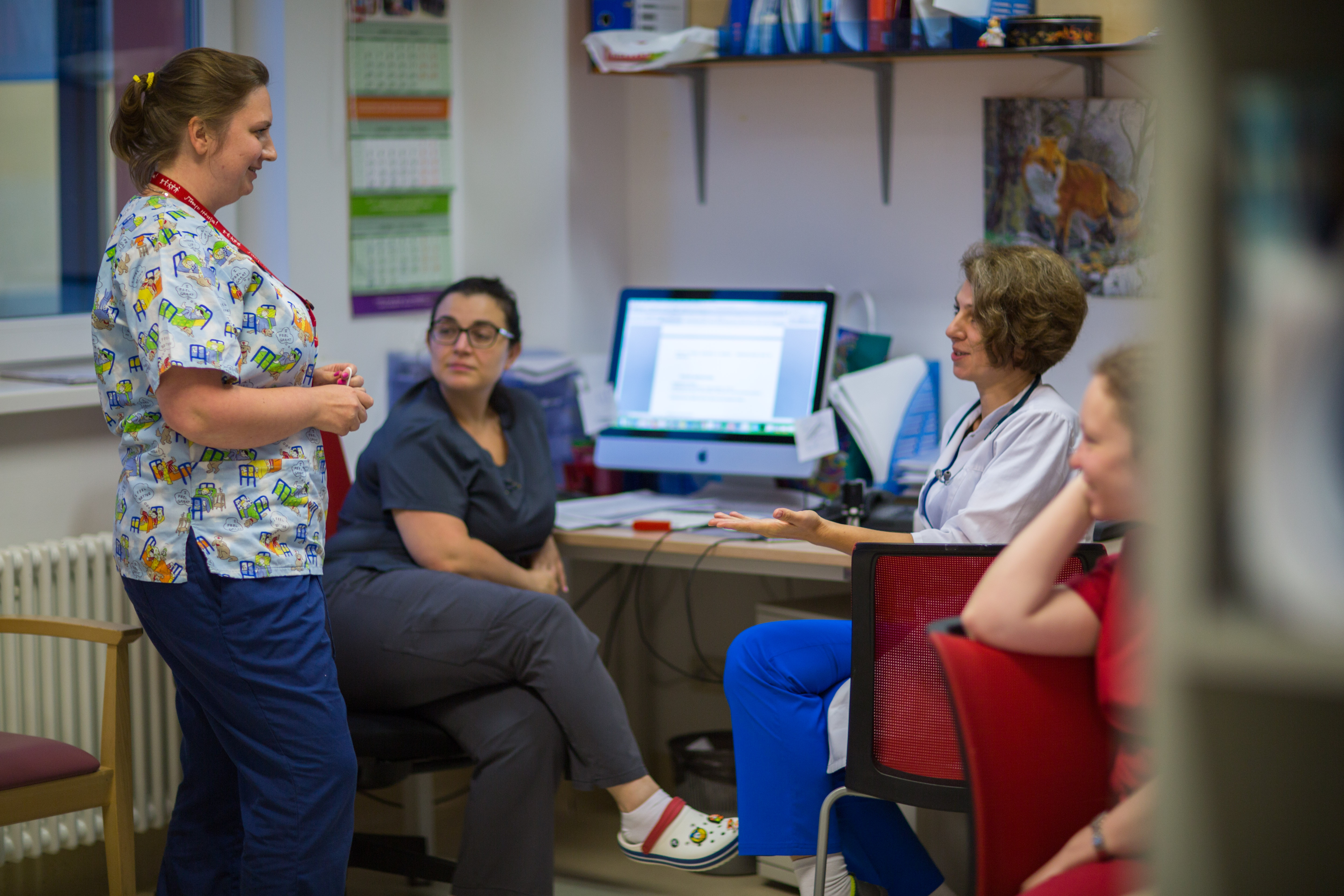
This is the kids of the teenagers’ department gathering to hang out without interrupting their therapy. Two of them are still on IV drips, but that’s no reason to sit around in their wards. Life’s more fun together.
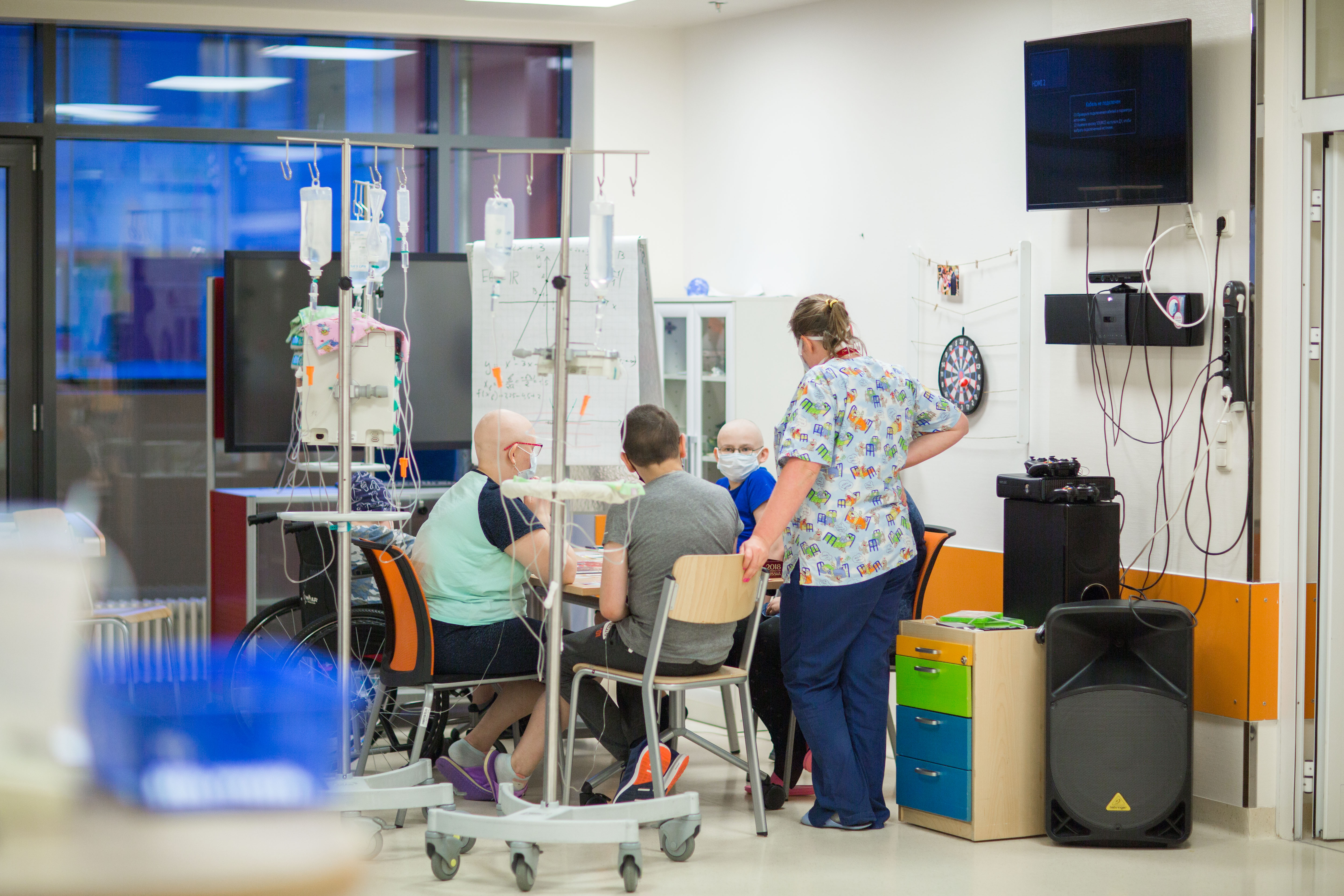
Teens find long-term treatment hardest. Painful procedures and forced isolation, multiplied by the challenges of adolescence, have a harsh impact on their mood and mental state. This young man, too, started feeling down… but then the girls from the charity recorded a video greeting to him from his idol. It was pure bliss!
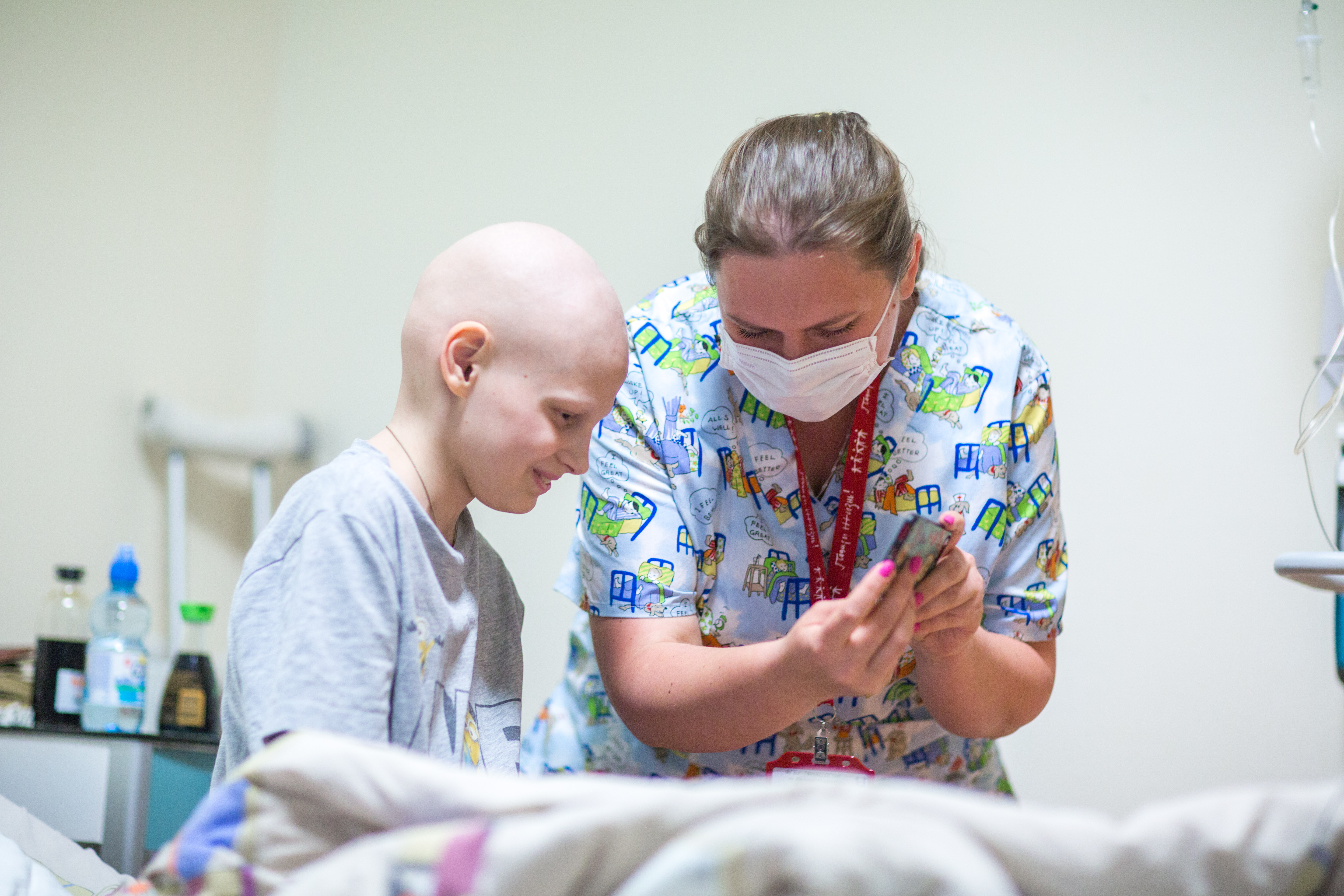
Watching the video together with Mum.
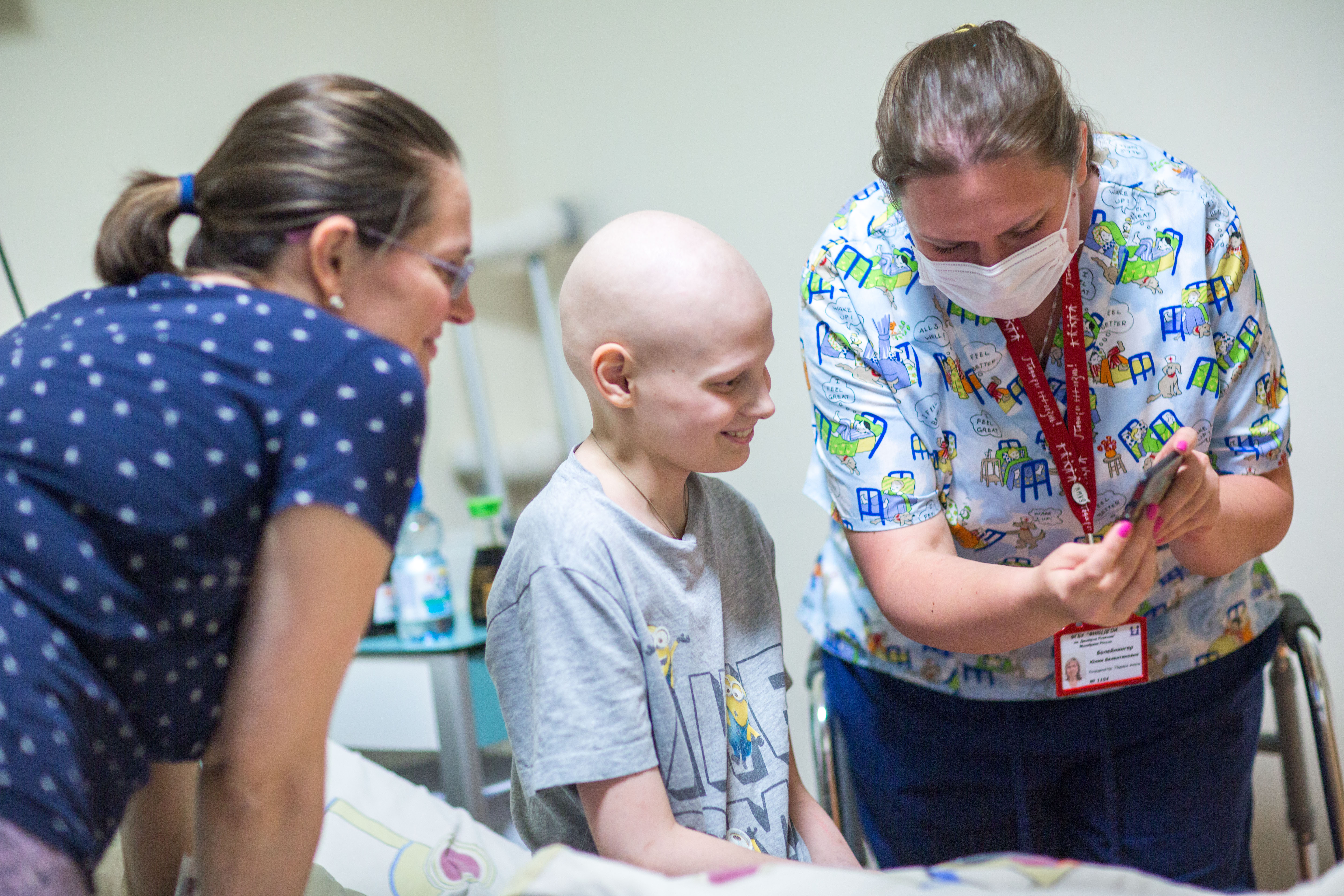
I actually spend as much time with mothers as with children. It’s particularly important to give a mother time and attention when she and her child have only just arrived. She won’t know how things work in Podari Zhizn, what the hospital routine is like, and what she can do to make her child’s time at the hospital comfortable on the emotional level. This is me helping a mother get her bearings.
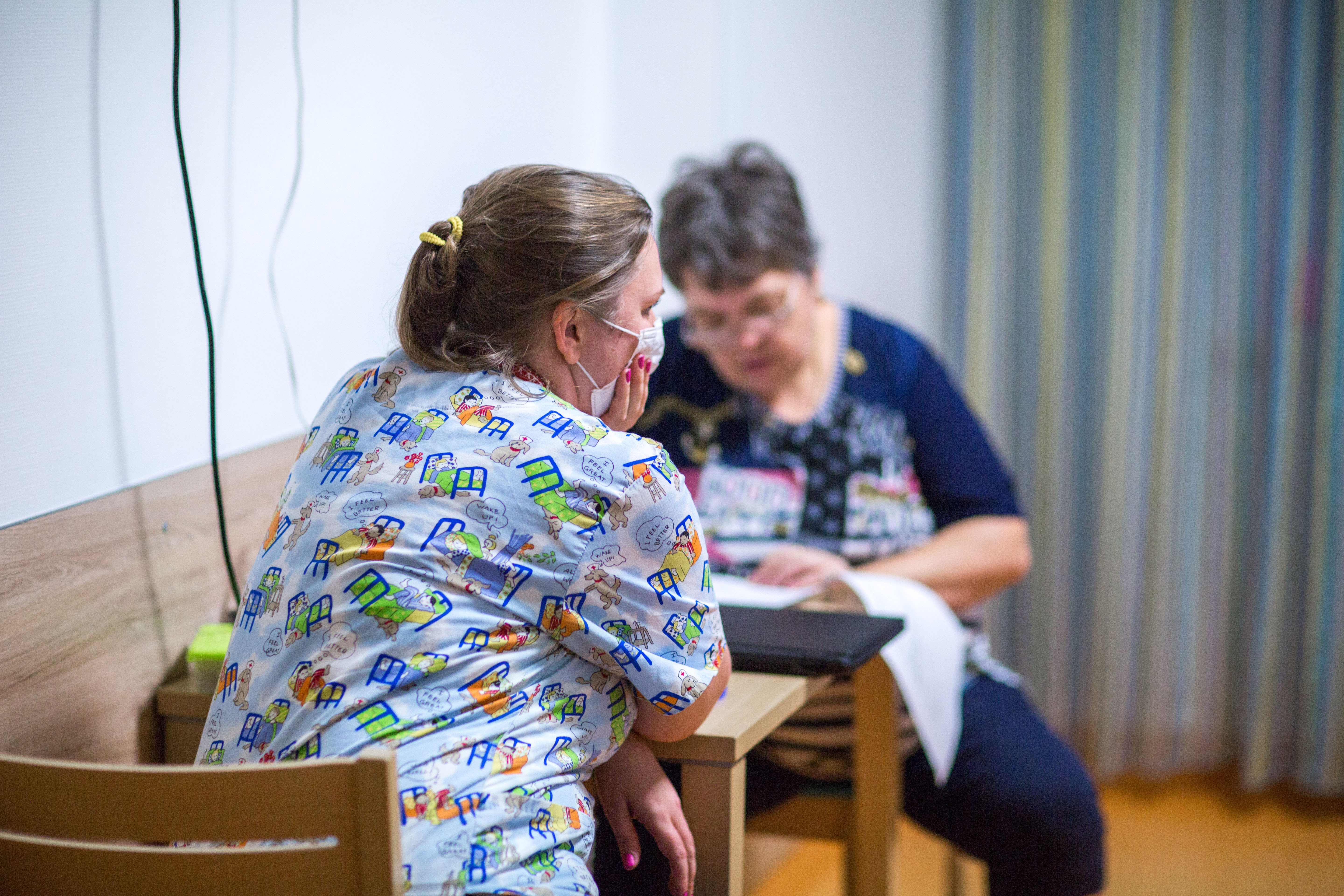
The department’s first visitor today is a permanent volunteer. This is us sorting through urgent business. That’s no mean feat, given that nearly everything in a hospital is urgent.
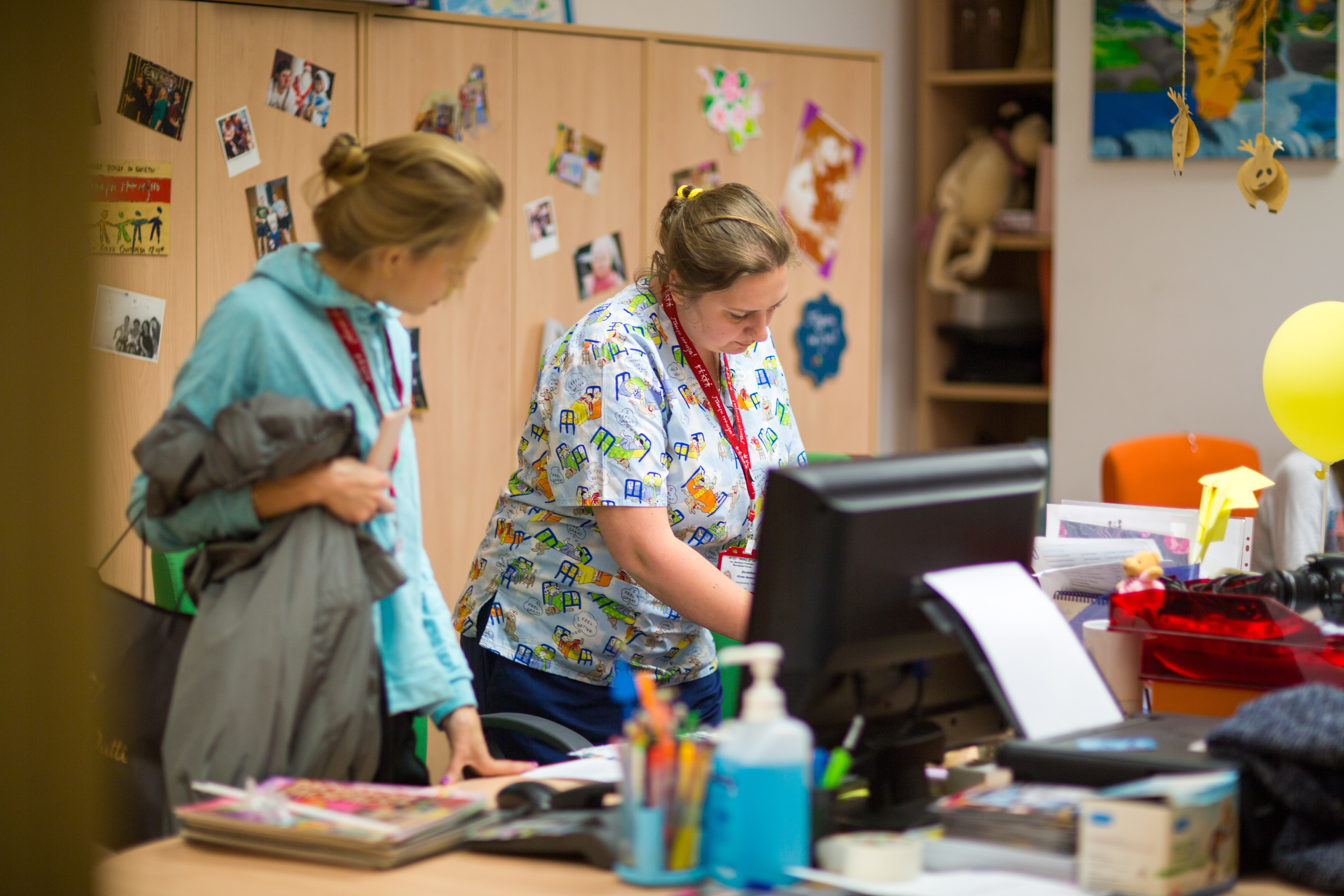
Coordinators and permanent volunteers can practically read each other’s minds by now. Having talks with newbies takes longer. This is me teaching one such newbie, running them through basic training and explaining how life works in the wards.
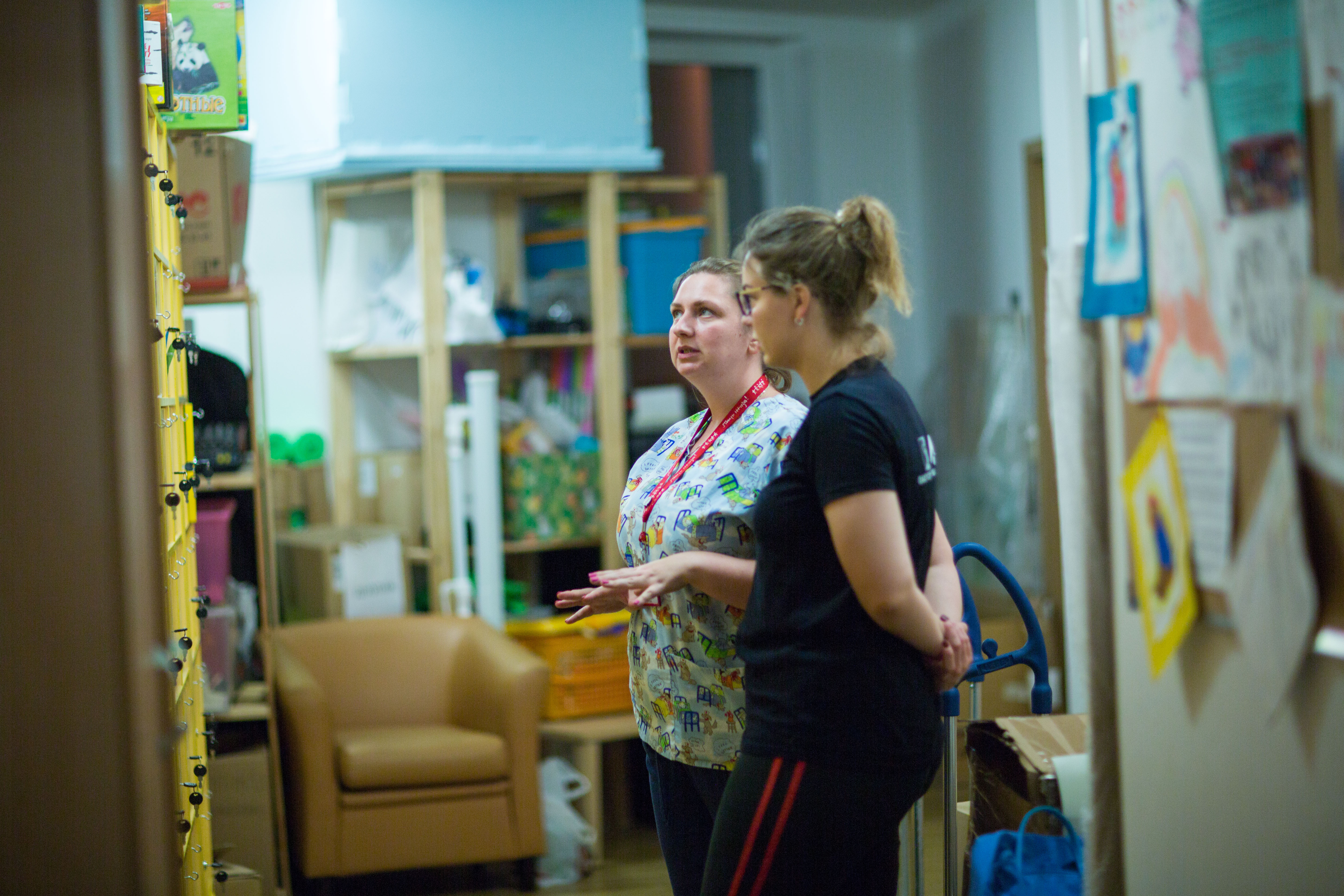
This is the coordinators Dasha (left) and Katya (right) sorting through the “Bravery Box”—in hospitals supported by the charity, this is the programme that involves gathering little presents for children who find it scary to undergo painful medical procedures. Our volunteers and donors regularly fill the box with toys, and then give them to the children to distract them at least a little from their pain and discomfort.
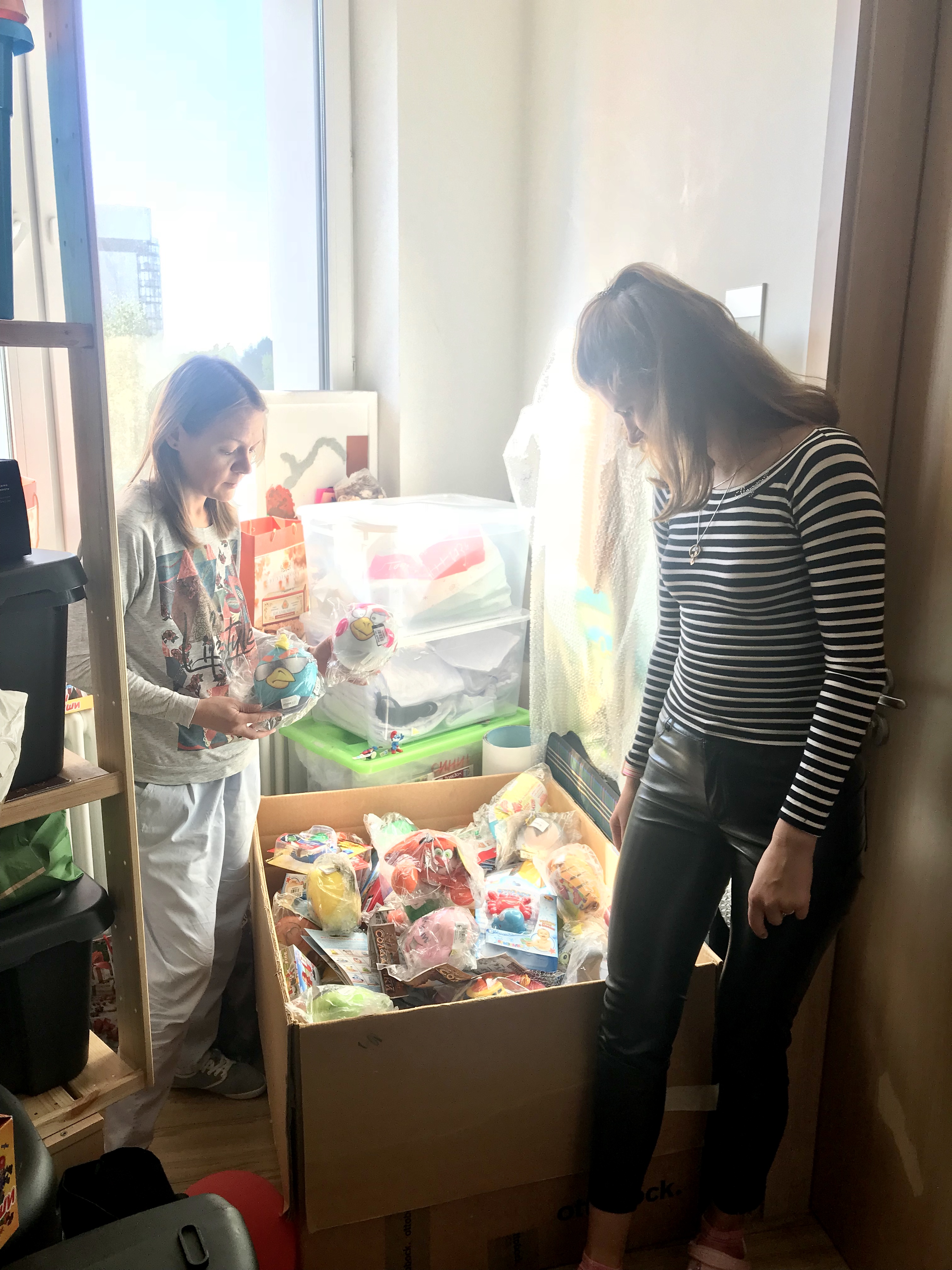
The hospital provides treatment for around 400 children at a time. Sometimes, as many as five have birthdays on the same day. But today, there’s only one, a girl named Nastya. We coordinators have prepared a present for her.
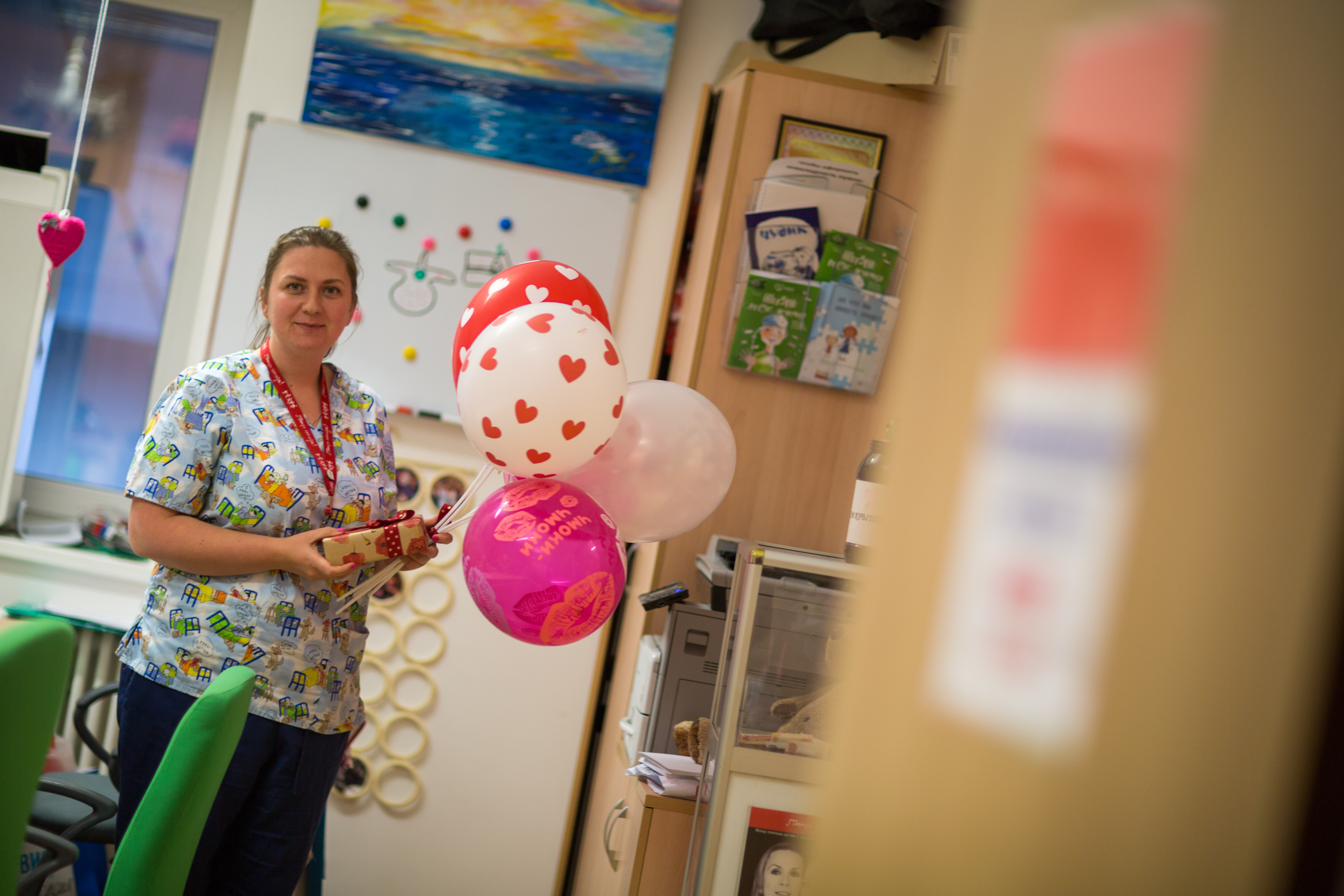
This is me on my way to wish Nastya a happy birthday.
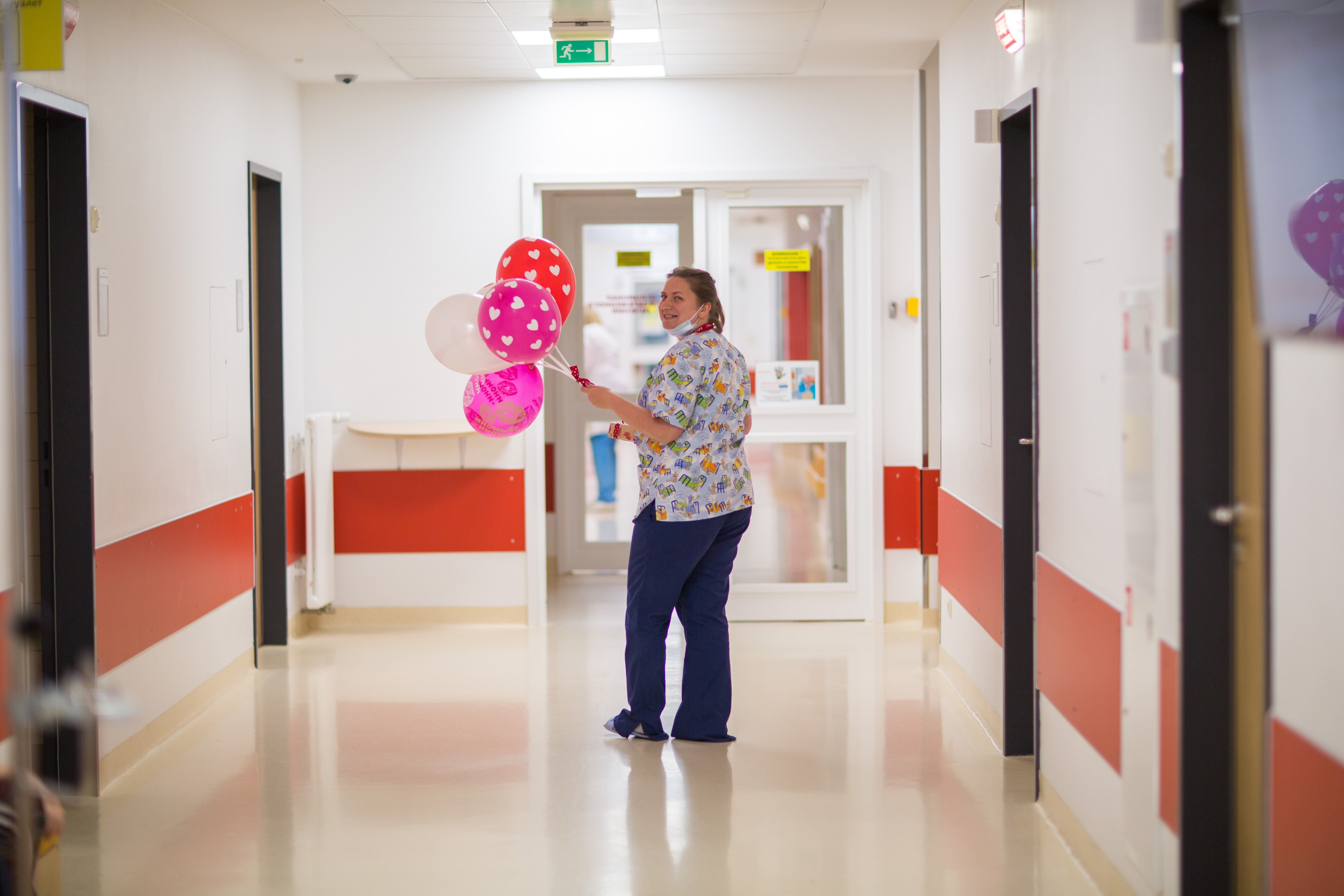
Celebrating a child’s birthday is a great way to support them, and remind them that eventually, treatment will end, and they’ll be celebrating their next birthday at home. Our department also has a “Success Stories” project, in which those formerly in Podari Zhizn’s care share their stories of how they recovered and tell us how they beat cancer. That’s a very real source of motivation for the children still in the hospital to keep fighting against their illness. This is a photo of me with Zhenya, the heroine of one “Success Story”.
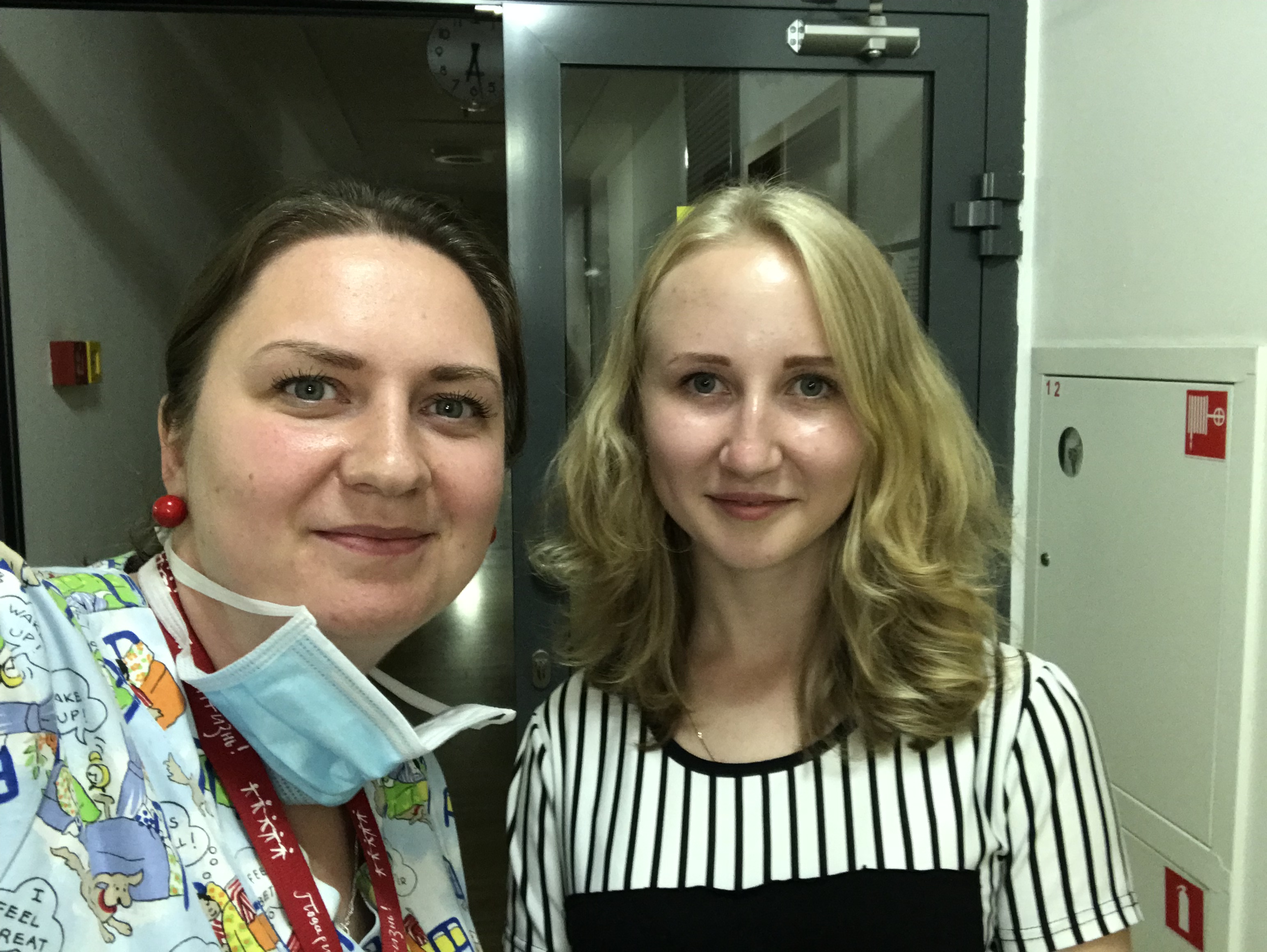
We decided to have a game of Mafia with the kids. For now, it’s still only “night-time”. The mafia wake up…
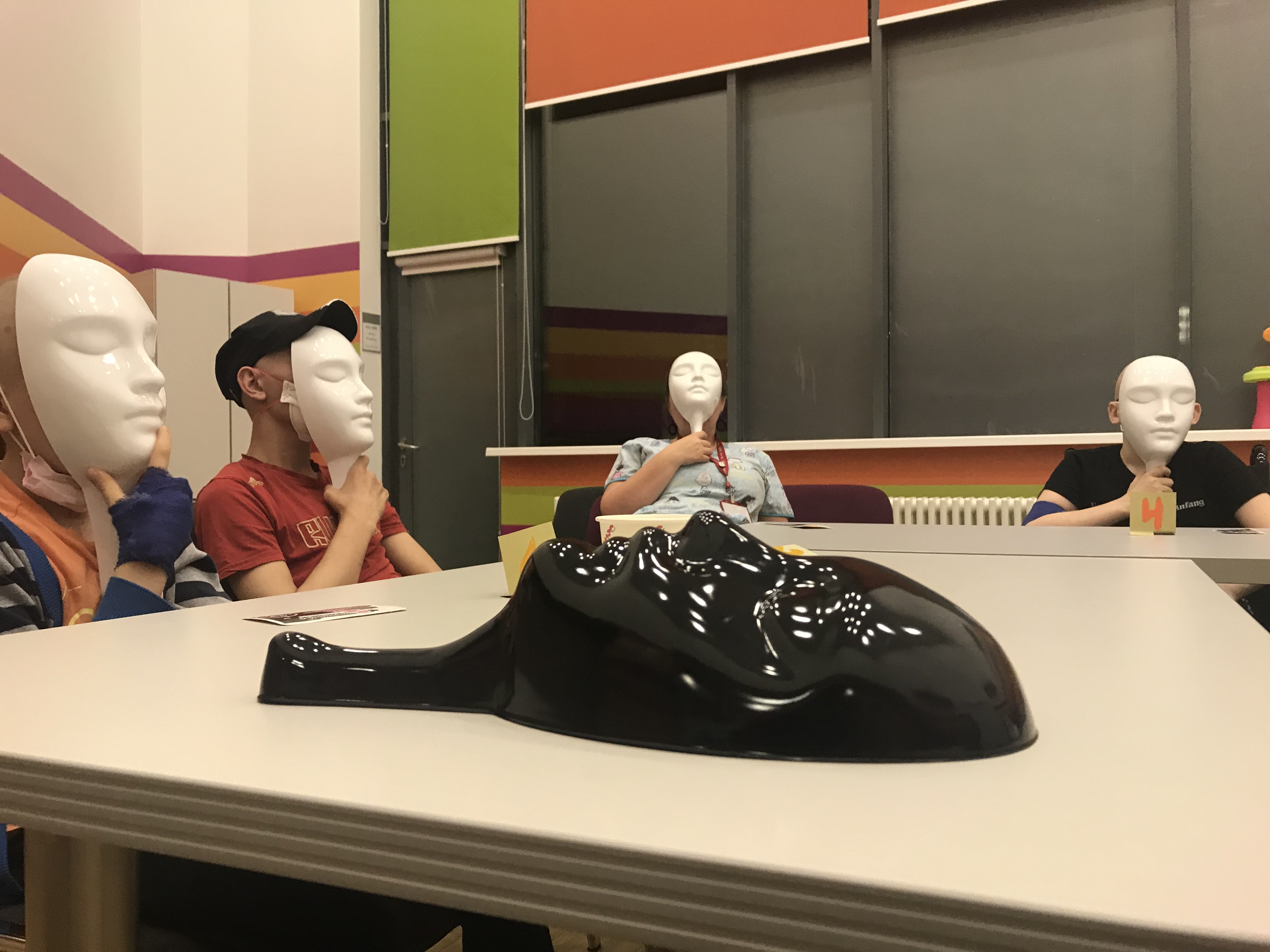
Come evening, Marina has dropped by from our UK sister charity Gift of Life.
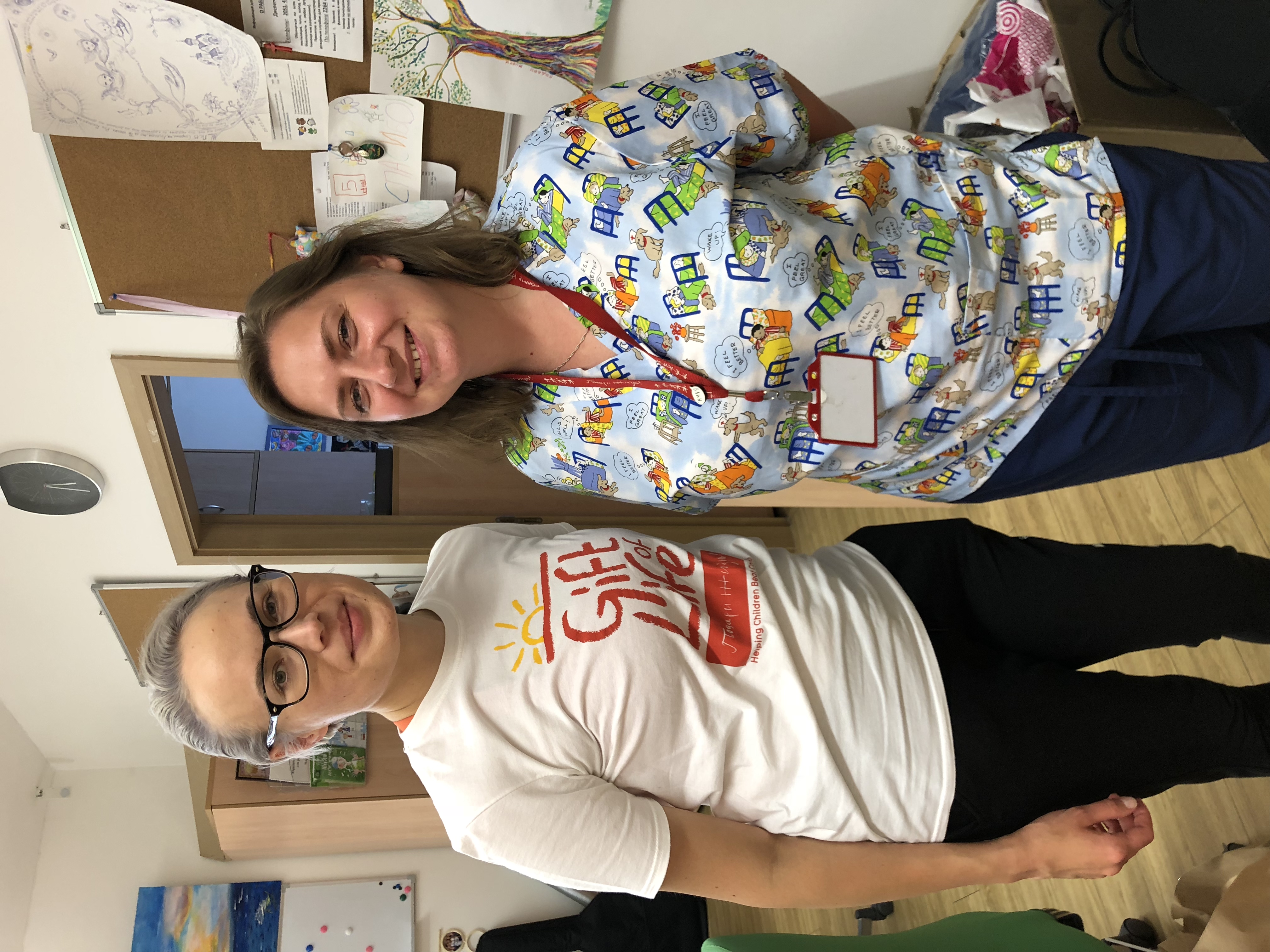
This is us walking through two departments and seeing the specialised rooms, such as the CAT scan room.
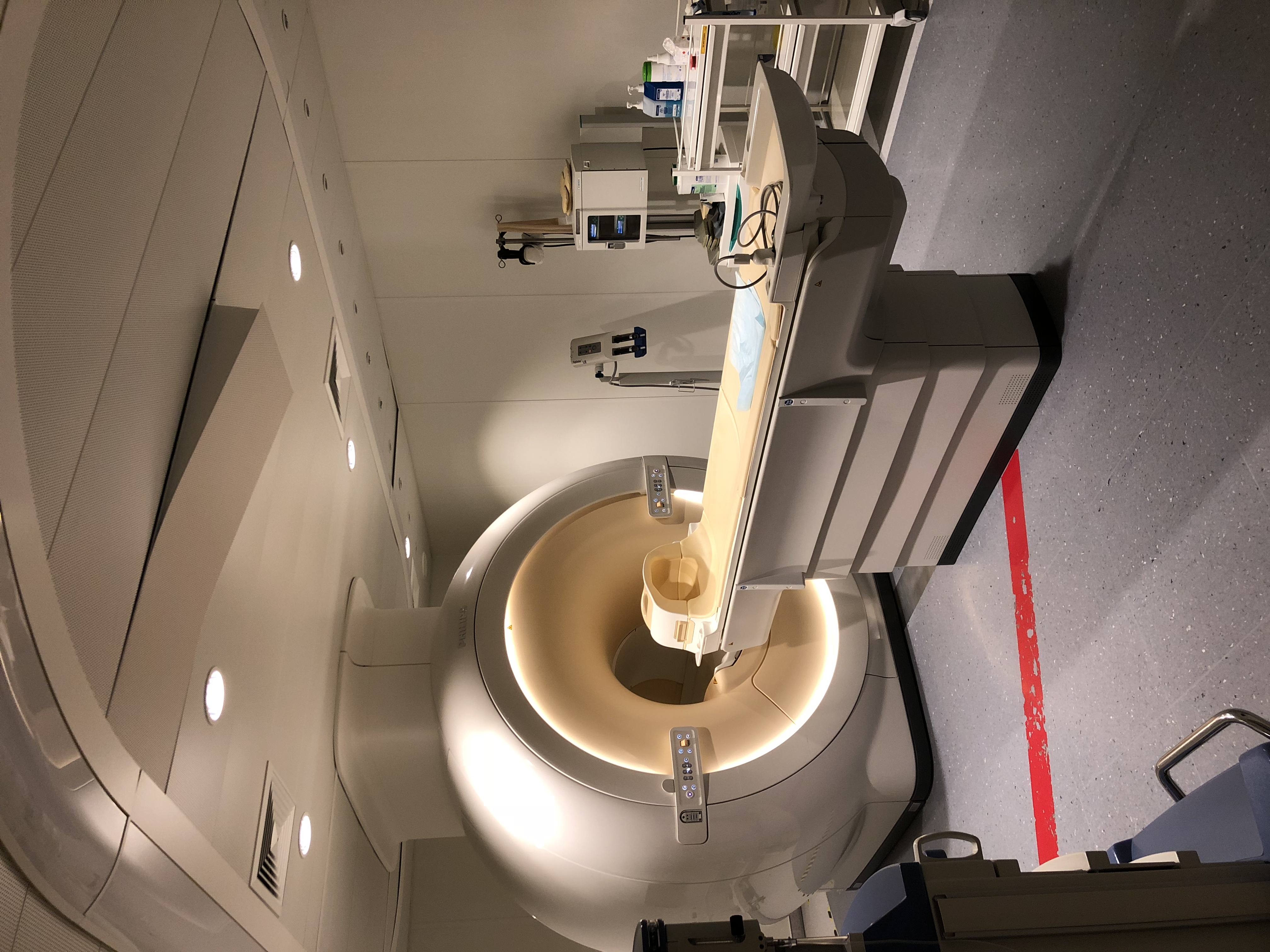
We took a look at the gaming hall.
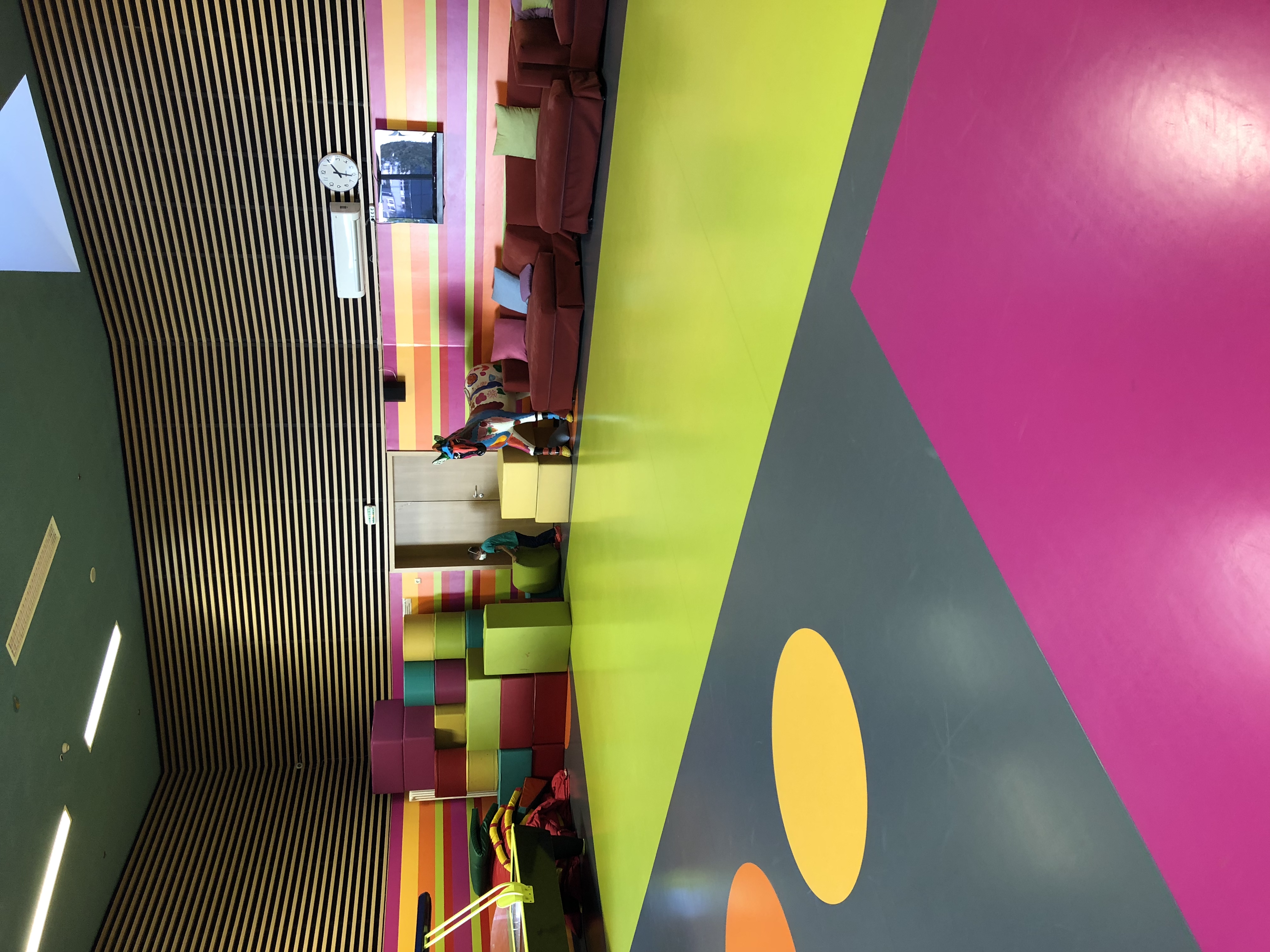
The children have decorated the hall themselves with their own drawings.
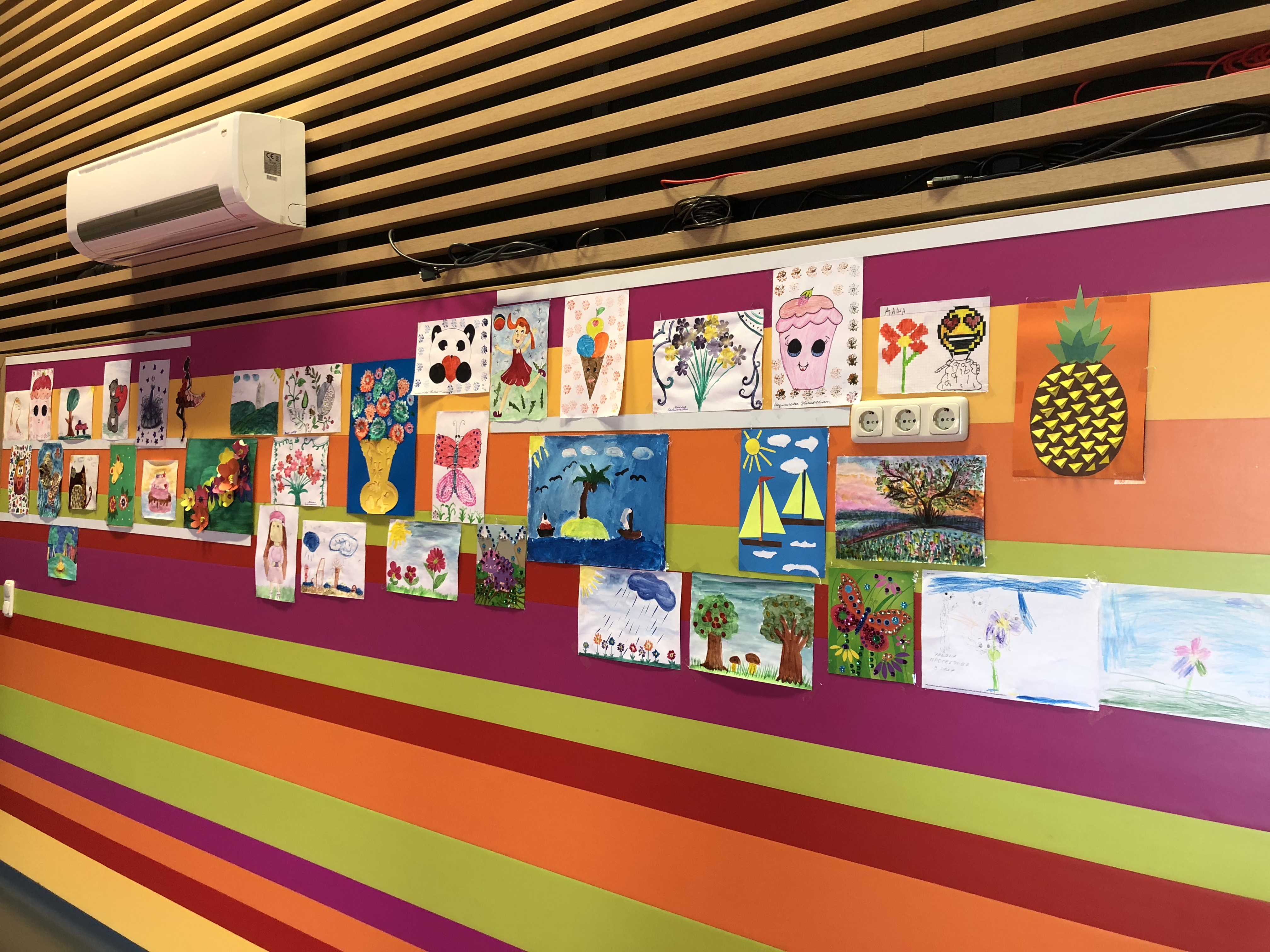
We spent a little time with the children to write down their stories for the website. This is me with Sergei Gerasimov. Gift of Life gathered funds for finding and bringing in an unrelated bone marrow donor for a transplant for him. The transplant was successful—Sergei is recovering and is getting ready to come home for the first time since treatment started nearly a year ago.
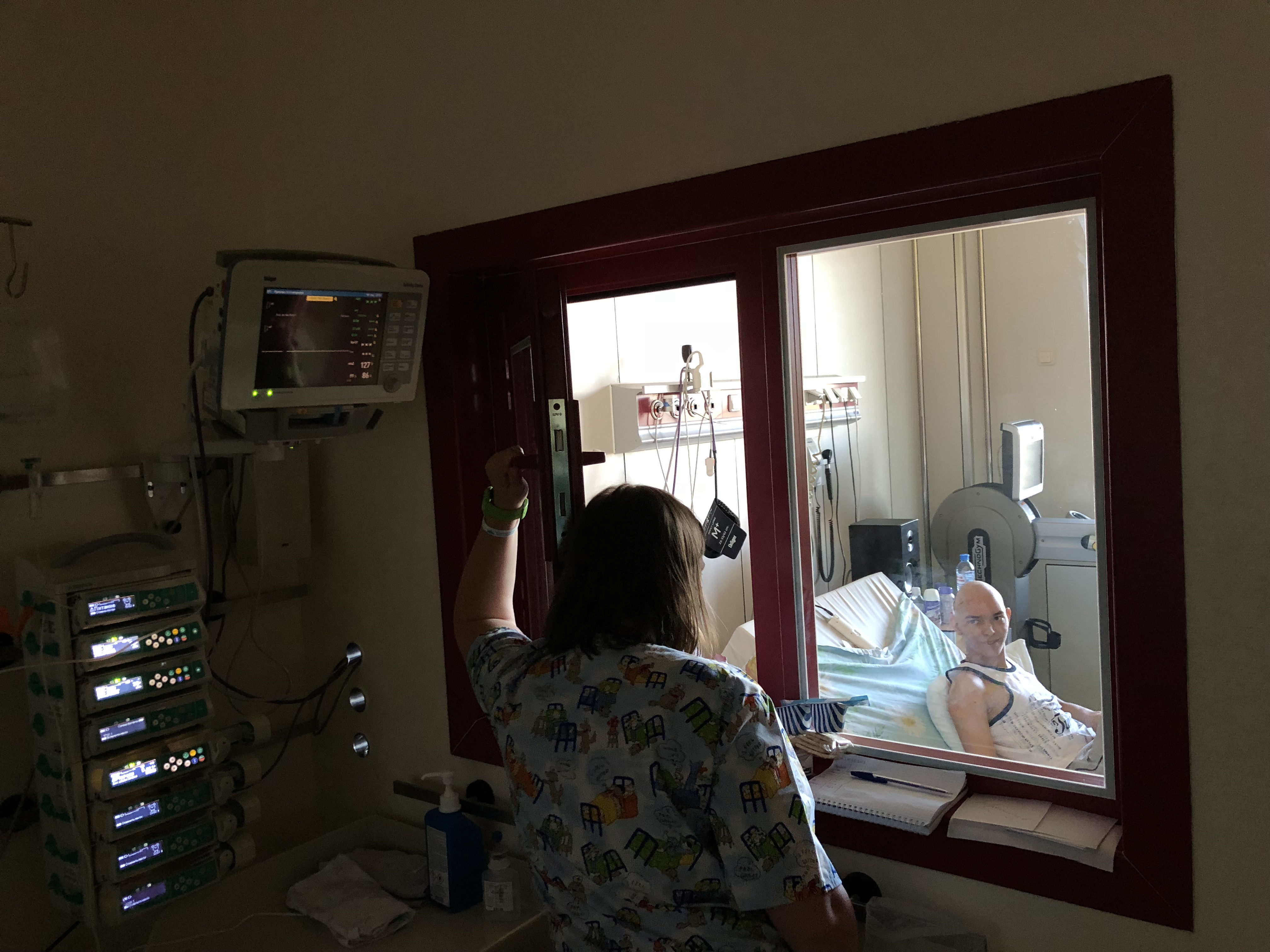
Before she left, we gave Marina a book with a meaningful name: Life After Treatment. It had just been delivered to our department today. Once they’ve recovered, the kids will have normal, healthy lives, and they can and should prepare for them while they’re still in hospital.
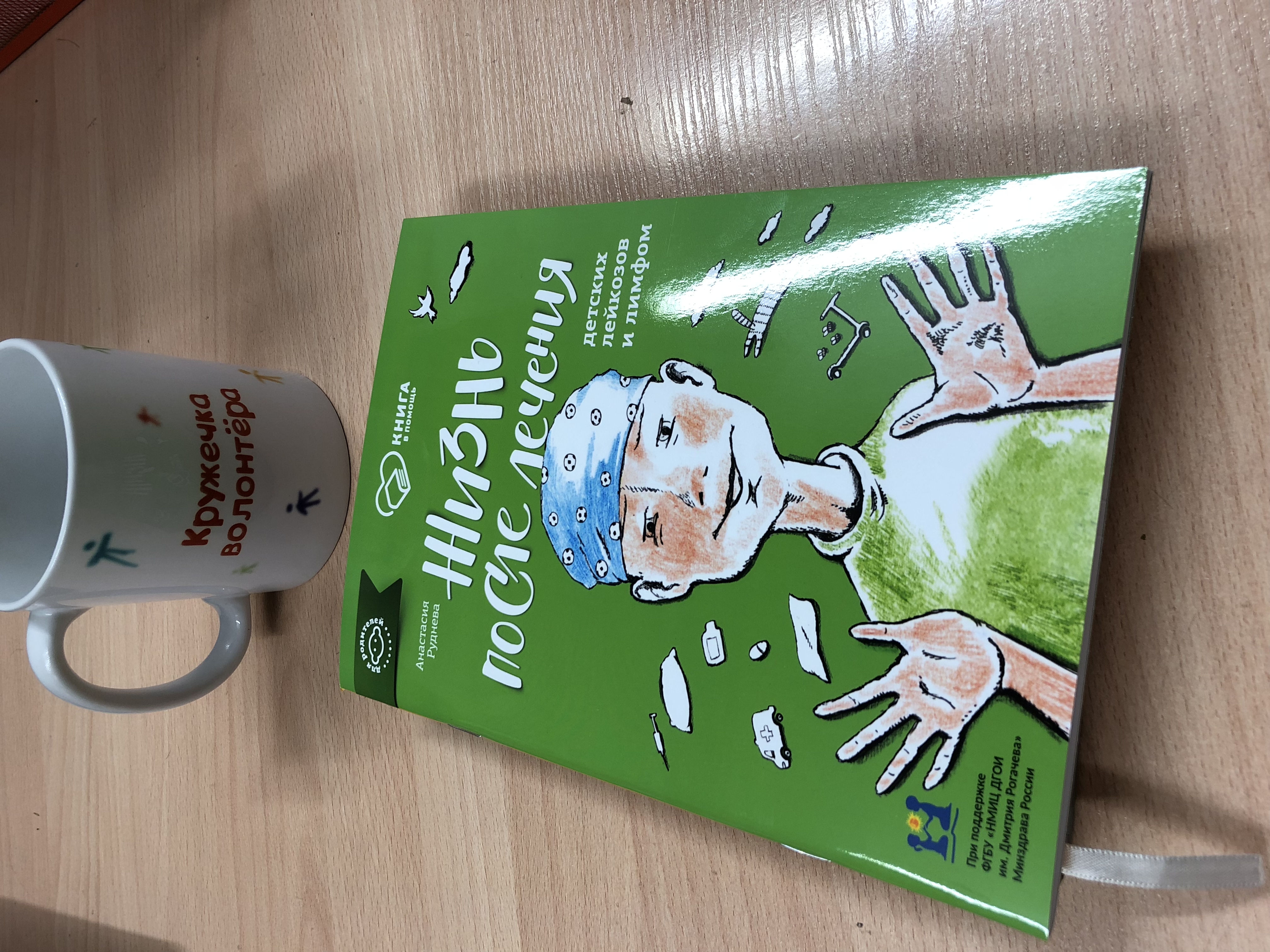
This was a long day, but a good one. Tired but satisfied, I take a little break before my journey home. Tomorrow, the Dmitry Rogachev Centre and our kids will be waiting for me again.

